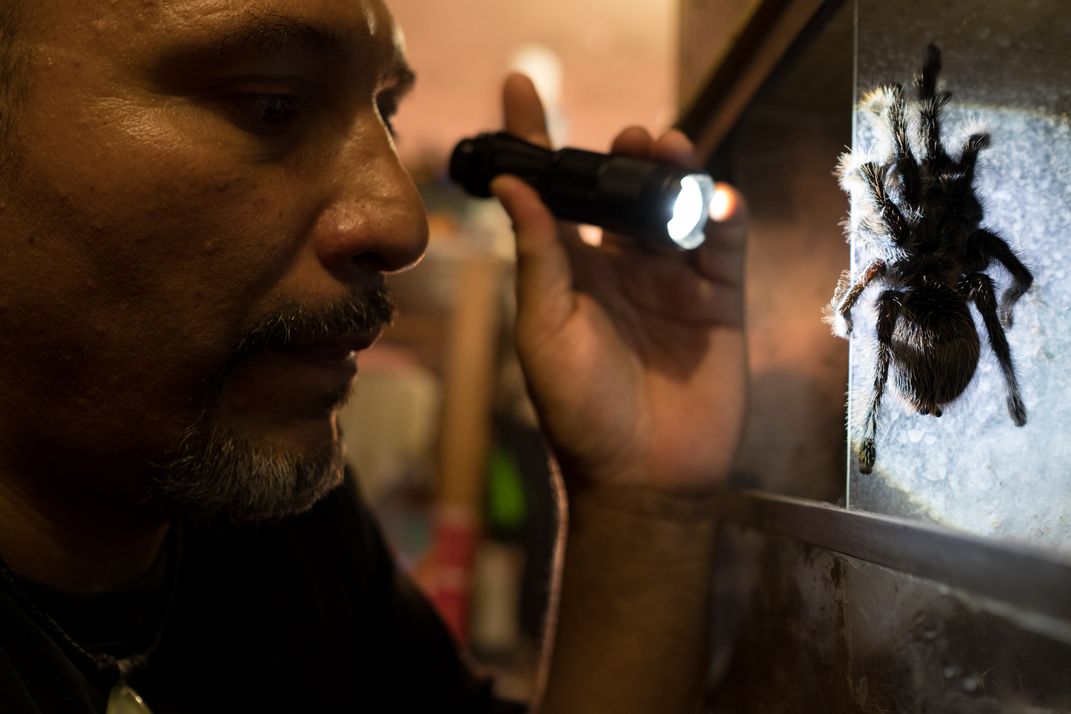Self-proclaimed bug lover Eduardo Chavez Cuevas inspects his pampas tawny red, a South American species. Serious hobbyists might keep hundreds of tarantulas as pets. Little studied, these spiders are the object of a booming illicit trade as pets and display pieces. Scientists report a significant amount of illegal activity involving tarantulas, believed to be fueled largely by hobbyists willing to pay hundreds of dollars apiece for pet spiders. The illegal tarantula trade is a little-known corner of the black market in wildlife, a multibillion-dollar industry that’s harming animal populations around the globe. To keep up with demand, some traders hire local people to hunt tarantulas in the wild. The spiders are smuggled out, then sold to breeders or collectors looking for the newest, most colorful, or otherwise most distinctive creature. Tarantulas are especially vulnerable to poaching because they’re long-lived (some reach 30 years old), and females reproduce late and infrequently. Poaching has taken a toll on brachypelma, a genus found in Mexico that includes the fire leg tarantula and the popular red-kneed tarantula, known for the flame-colored spots on its legs.
| Date Taken: | 10.2018 |
| Date Uploaded: | 11.2018 |
| Photo Location: | Mexico City, Mexico |
| Camera: | X-Pro2 |
| Copyright: | © Juan Pablo Ampudia |

